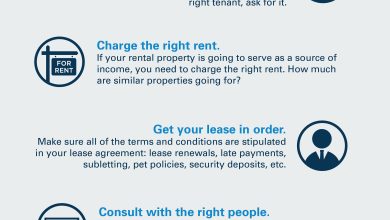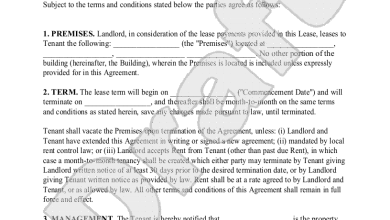Resolving Rental Disputes: The Role of a Skilled Property Lawyer
Resolving rental disputes can be a complex and challenging process. Whether you are a landlord or a tenant, having a skilled property lawyer by your side can make a significant difference in achieving a fair and satisfactory resolution. A property lawyer specializes in the legal aspects of real estate, including rental agreements, lease disputes, and eviction proceedings. They possess the knowledge and expertise to navigate the intricacies of rental laws and regulations, ensuring that their clients’ rights are protected.
Understanding Rental Disputes
Rental disputes can arise due to various reasons, such as non-payment of rent, property damage, lease violations, or disagreements over lease terms. These disputes can quickly escalate and become emotionally charged, leading to strained relationships between landlords and tenants. In such situations, a skilled property lawyer can act as a mediator, helping both parties find common ground and reach a mutually beneficial solution.
Case Study: Non-Payment of Rent
Let’s consider a case study where a tenant fails to pay rent for several months. The landlord, frustrated with the situation, decides to take legal action. Without the assistance of a property lawyer, the landlord may face challenges in navigating the legal process and ensuring a favorable outcome. A skilled property lawyer can help the landlord understand their rights, draft a demand letter, and initiate eviction proceedings if necessary. They can also explore alternative dispute resolution methods, such as negotiation or mediation, to avoid lengthy court battles.
The Role of a Skilled Property Lawyer
A skilled property lawyer plays a crucial role in resolving rental disputes. They provide legal advice and guidance throughout the entire process, ensuring that their clients’ interests are protected. Here are some key responsibilities of a property lawyer:
- Reviewing and drafting rental agreements: A property lawyer can help landlords and tenants understand the terms and conditions of a rental agreement, ensuring that it complies with local laws and regulations.
- Mediation and negotiation: In many cases, rental disputes can be resolved through mediation or negotiation. A property lawyer can act as a neutral third party, facilitating discussions and helping both parties find common ground.
- Representation in court: If a rental dispute escalates and ends up in court, a property lawyer can provide strong representation, presenting the client’s case effectively and advocating for their rights.
- Knowledge of rental laws: Property lawyers have in-depth knowledge of rental laws and regulations. They stay updated with any changes in the legal landscape, ensuring that their clients receive accurate and up-to-date advice.
- Alternative dispute resolution: Apart from court proceedings, property lawyers can explore alternative dispute resolution methods, such as arbitration or mediation, to resolve rental disputes more efficiently and cost-effectively.
Statistics on Rental Disputes
Rental disputes are not uncommon, and having a skilled property lawyer can significantly impact the outcome. Here are some statistics that highlight the prevalence of rental disputes:
- According to a survey conducted by the American Bar Association, 70% of landlords and tenants have experienced rental disputes at some point.
- In a study by the National Association of Realtors, it was found that 80% of landlords faced issues related to non-payment of rent.
- The same study revealed that 60% of tenants reported problems with property maintenance and repairs.
- Research conducted by the Legal Services Corporation showed that tenants who had legal representation were more likely to achieve favorable outcomes in eviction cases.
Conclusion
Resolving rental disputes can be a complex and challenging process, but with the assistance of a skilled property lawyer, both landlords and tenants can achieve fair and satisfactory outcomes. A property lawyer’s expertise in rental laws, negotiation skills, and knowledge of alternative dispute resolution methods can make a significant difference in resolving disputes efficiently and cost-effectively. By understanding the importance of a property lawyer and their role in rental disputes, individuals can navigate the legal landscape with confidence and protect their rights.








